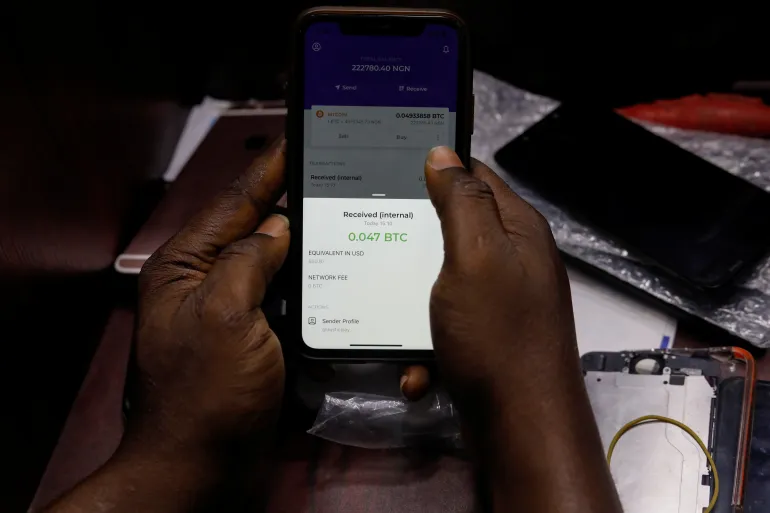Throughout her career which spans diverse industries from tourism to marketing to retail services and financial services, Buhle Goslar’s idea of success has always been in terms of how much impact she has had in the role, be it through her leadership style or the quality of product her team makes.
It is this quest to do impactful work that motivated her career pivot from banking to fintech, she tells TechCabal in an interview. The South African native’s career in fintech has seen her lead as the CEO of JUMO’s Africa and Pakistan regions. JUMO is a fintech startup facilitating digital financial services such as credit and savings in emerging markets by way of USSD short codes.
Just this past April, Buhle was appointed to the board of Copia, a rapidly growing Kenyan e-commerce startup providing access to essential household consumer goods for 1.9 million middle to low-income customers residing in hard-to-reach areas through a mobile app and a network of over 38,000 agents.
Besides her board appointment at Copia, she will also be chairing the company’s Environmental, Social, and Governance (ESG) committee and sitting on its compensation committee.
The pursuit of impact
Copia was recently named in the Financial Times Africa’s 75 fastest-growing companies of the year 2022, a possible testament to the feasibility and effectiveness of the e-commerce startup’s business model which caters for a previously unserved market of middle to low-income Africans.
Copia enables these consumers, who in most instances do not have internet access, to make purchases through the company’s digitally-enabled agents who act as ordering and delivery points. In the background, Copia’s tech-enabled distribution and logistics system facilitate fast and convenient fulfilment of orders.
The company collaborates with suppliers to bring high-quality, essential products to hard-to-reach middle and low-income consumers in Kenya and Uganda. To achieve this, they utilize a distribution network of over 38,000 agents (77% of which are women) to enable customers (73% of which are women), to buy quality goods, at affordable prices. They deliver to customers in just 2 to 4 days for free.
Buhle’s personal quest to do impactful work aligns well with Copia’s business model which also enables sustenance for the middle and low- income population, most of them women, whom they employ as agents.
“I really like the Copia model of helping people build businesses and the way they recruit the agents and put them in a position where they go from not having much of a business at all to earning way above minimum wage,” she says.
What she brings to Copia
With a 22-year career working with internationally recognized brands such as Investec, Barclays, Woolworths and JUMO, Buhle brings a wealth of experience to Copia’s board.
“My focus will be on management strategy and providing direction for the introduction of the additional services. I also bring my extensive experience forging entries into new markets which often includes navigating the regulatory environment and dealing with multiple jurisdictions,” she says.
With Copia on a rapid expansion drive, Buhle’s experience in leading entries into new markets will come in handy. The company announced a $50 million Series C equity fundraising in January 2022 which it plans to use to grow its model across East Africa and expand into other African markets.
…On using e-commerce to serve middle to low-income Africans
Africa’s middle to low-income population is close to 1 billion. According to the World Bank, over 750 million of this population segment resides in rural areas and so do not have easy access to essential items stocked in urban supermarkets.
Copia says they ensure that their agents are plugged to the needs, desires and demands of these customers. This enables the company to come up with an extensive and dynamic product listing that brings much-needed convenience to these customers’ lives.
For Buhle, what sets Copia apart is its ability to meet its customers’ needs at reasonable prices while also offering a broad range of payment options including cash and mobile money.
“What products do is provide a way to bring more liquidity to the system, whether it’s by Copia saying we accept cards or mobile money. When you do that, it means more consumers are willing and able to buy products,” she adds.
The Amazon question
In June this year, it was reported that the e-commerce giant, Amazon, had plans to launch an e-commerce marketplace in South Africa (and eventually other African markets) early next year. This development presents a competitive threat for incumbent e-commerce players in the continent, including Copia.
To Buhle, Amazon’s interest in e-commerce on the continent validates what companies like Copia are doing. “I think that when people are interested in what you are doing and your segment, it signals that you are playing in a wide opportunities space and not an empty space,” she adds.
Furthermore, Buhle points to the fact that Copia’s model is especially unique in that it caters specifically to middle and low-income consumers who most of the time do not have credit cards and live in hard-to-reach places which might not even have a verifiable addresses.
This, according to her, is in contrast to most e-commerce platforms that seem to run on a Western model which caters for the upper-middle class and high-income consumers who have access to credit cards and have verifiable addresses.
“Copia recognises that most of the African market works on mobile money and cash, both of which the Copia model is built to accept and prioritise. The next thing is we need to be able to actually find you where you are and if you have no address, how do you handle that last mile delivery bottleneck? Copia has solved that correctly through their proprietary logistics and how they recruit agents and train them,” she adds.
…On being a black woman leader in the African tech ecosystem
Having entered the tech ecosystem at a senior level, Buhle is aware of the fact that her position means she might not have as many challenges as a 19-year-old female software engineer starting her first job in tech.
Regardless, she believes diversity in the ecosystem is vital because it helps reduce cases of unconscious bias in the tech products and services powering the world.
“In the next couple of years, pretty much every business will be tech-enabled. This is where diversity is important because it ensures that people in charge do not just hire in their own image.”
She also believes that having diversity in the ecosystem includes telling positive stories alongside the stories of challenges that women and girls face in the sector, so as not to deter the interests of newcomers.
…On the 2 to 5-year future of Africa’s fintech and e-commerce ecosystems
With Africa’s e-commerce and fintech ecosystems currently making strides in terms of both innovation and venture capital flows, Buhle believes that more is still to come.
“I think that we are going to see significant growth in both which will be exciting for investors. I also think that we will see more African technology companies, locally or internationally, and some really interesting exits to international firms across both,” she says.
The other contribution she thinks sectors like e-commerce and fintech will make is creating employment opportunities for the continent’s young population.
“We are already seeing Africa becoming a leader in talent globally, which is fantastic. Google and Microsoft are already tapping into the continent for talent.”
However, despite this potential, she believes there is still a need for investment in African economies which will, in turn, help the e-commerce and fintech sectors to grow.
“As compelling as the growth has been so far, the sectors will also require significant economic stability from African countries. Other things like infrastructure and power are also incredibly important,” she concludes.















